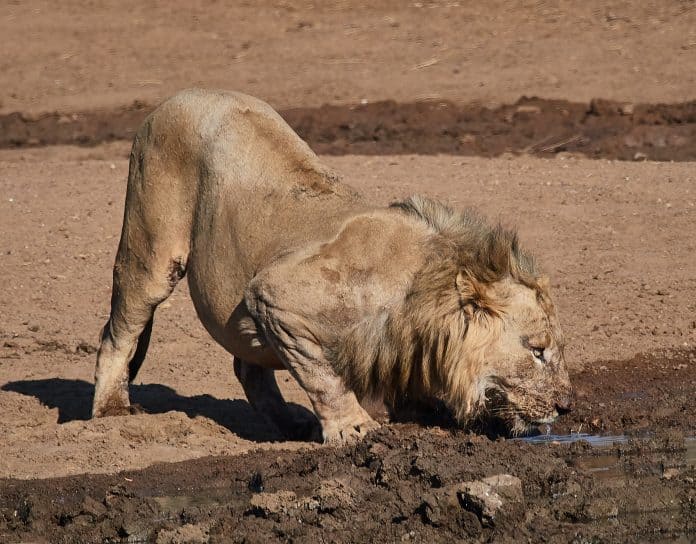Water is life (little wonder, Pour Me Water by Kizz Daniel was a major hit).
Let’s talk about Water Business, how to start a water company, produce bottled water, and operate down the value chain for commercial gains. But before we delve into the nitty gritty, allow me to give you a bit of core insight in summary of what it involves.:
The water bottling business involves sourcing, treating, bottling, and distributing water for consumption. Here are some key aspects of this industry that you need to know:
- Sourcing: Water can be sourced from various places, including natural springs, wells, or municipal water supplies. The source significantly impacts the water’s quality and the treatment required. It is also important to take the necessary measures to locate your bottling facility where you can source quality water. If you must get a borehole, find the
- Treatment: The water is typically treated to meet safety standards. This can include filtration, UV treatment, reverse osmosis, and the addition of minerals for taste. The treatment process depends on the initial water quality and the desired final product.
- Bottling: After treatment, the water is bottled in various sizes, from small single-serve bottles to large multi-gallon containers. The choice of packaging material (plastic, glass, etc.) can impact the product’s market appeal and environmental footprint.
- Branding and Marketing: Branding is crucial in the bottled water industry. Many brands differentiate themselves through source stories (e.g., mountain spring water), health benefits, or environmental practices.
- Distribution: Bottled water is distributed through retail channels, direct delivery to homes and offices, or online sales. Efficient distribution is key to profitability due to the low margins in this industry.
- Regulations: The industry is subject to various health and safety regulations, which can vary significantly by region. These regulations ensure the safety and quality of the bottled water.
- Environmental Impact: The bottled water industry faces criticism for its environmental impact, particularly concerning plastic waste and the carbon footprint of production and distribution. Many companies are focusing on sustainable practices, like using recycled plastics or more eco-friendly packaging.
- Trends: There’s a growing trend towards flavoured, mineral-enriched, or “functional” waters, which offer additional health benefits or enhanced taste. The demand for premium and artisanal water brands is also increasing.
- Economic Considerations: The bottled water industry is highly competitive with low profit margins, making scale and efficiency crucial. It’s also influenced by factors like consumer preferences, public health trends, and global events.
- Challenges: Challenges include managing water sources sustainably, addressing environmental concerns, and navigating regulatory landscapes. There’s also competition from public water supplies and other beverage sectors.
Note: Entering this industry requires careful consideration of these factors, along with a solid business plan and market research to understand local demands and competition.
This article is primarily to teach you how to start a water company for a commercial water packaging business; whether it is sachet water (Called pure water by most people in Nigeria) or a bottled water business, it is important to understand your market and the regulations around the production of food and beverages in your chosen market.
Note: Water (chemical formula H2O) is an inorganic, transparent, tasteless, odorless, and nearly colorless chemical substance, which is the main constituent of Earth‘s hydrosphere and the fluids of all known living organisms (in which it acts as a solvent).
To start a water bottling business in Nigeria, you must obtain the right license from NAFDAC, after which you could then consider other business factors and forces that would determine the business model that best fits your planned production.
The water business has a very long value chain from which anyone might choose to start from and make a lot of money.
Bottled water businesses take different forms – You could choose to operate at several points on the entire value chain. You could choose to deal with bottling and distributing drinking water to consumers as a business. Whether purified, distilled, or natural spring water, your bottled water business will supply your customers with the necessary hydration to keep them alive.

According to a new report by UNICEF and the World Health Organisation – World Health Organization, billions of people worldwide are continuing to suffer from poor access to water, sanitation and hygiene.
If you are looking at starting a bottled water production or water bottling business and you need a bottled water factory business plan, then you will find this guide on how to start a sustainable bottled water production business an invaluable part of your preparation process.
Call it a bottled water production feasibility study, if you will.
With the right management practices, one can make significant returns on investment and even break even within three years of investment. The average Return on Investment (ROI) for bottled water production is about 300%, and any figure short of that means there is a leak somewhere in management. Find it and fix it.
Contents
Table of contents
So what are the options available, and what steps does it take to set up a bottled water production line for clean bottled water?
Total Time: 15 minutes
Conduct Adequate Market Research
The first step in conducting any meaningful market research is to decide what you need to find out.
However, take note that what you must find out must be centred around making your customers happy and saving the reasonable cost of getting your product out there.
Many entrepreneurs have lost their business capital, taking a stupid leap of faith into their business without adequate market research – that is Suicidal!
It would be helpful to keep in mind that bottled water is generally a commodity product. Except for a few luxury brands of water, bottled water is a commodity product that requires a high volume of sales for you to turn a profit.
Therefore, it is important that you consider the market size and delivery infrastructure that you will leverage if you are to cover a geographically wide area.
Keep in mind that it is best to situate your bottled water business close to heavily populated areas where access to the market will be much cheaper, instead of having to ship your products a long distance which will erode your profits.
Before you begin your business, you need to know the following at the very least:
1. Where your market is.
2. Who exactly are you selling to
3. What is the size of the market
4. Who are the competitors
5. How well are these competitors doing in the market
6. What is going to be your strategy to claim market share from them
Other factors to keep an eye on while carrying out your market research would be the pricing tactics of competitors. Are they positioning with a cost-competitive advantage? If that is the case, are you competing with them on cost or planning to enter the market as a luxury mineral water brand?
Carry out a complete bottle water production feasibility study so that there is a clear picture of what you are up against and how you are going against it. If writing a feasibility study is well over your head, do not hesitate to spend money to hire a business development professional to provide you with this service. Don’t stint on this – you are spending money on equipment and space. All that will be wasted if you do not get the feasibility part right.
Write a Business Plan
Now that you have locked in all those learning on the business opportunity and the strategy, it is time for you to put it all down in a comprehensive business plan.
Sections you would typically have in a business plan of this nature would include an executive summary, market segmentation, marketing plan, management team, legal requirements and business location analysis.
This business plan will come in handy when you want to raise funds from investors to back your new business. But, even if your project is self-funded, your business plan will act as a roadmap of how the business will proceed, opportunities it would capitalize on, challenges it would face and how it would surmount them.
Without doing this critical step, you risk treating your capital like out-of-pocket cash, only to gasp when you run out of cash and half of what needs to be done is yet to be done.
Decide on a project location
This is a critical decision and not one to be made in a hurry. In selecting a site for your bottled water manufacturing project, bear in mind that access to your market will be a major factor in determining your profit levels.
And even when a site is accessible to the market, it may still be unsuitable for a bottled water production factory. Keep in mind that bottled water is a consumable product, hence you should take note of the hygienic conditions of the proposed site.
For example, NAFDAC food safety regulations prohibit the siting of a water packaging factory close to a cemetery, abattoir, wood mill, oil depot or sewage plant. Due to the high potential for contamination of your water source from such environments.
Also keep in mind that NAFDAC requires that a bottled water production facility has a cloakroom, packaging materials store, production bay, finished goods store and an administrative office. If you are not building a purpose-built facility, you have the option of renting a sizable facility and resizing it to fit the purpose.
Get The Needed Licenses
After deciding on a location, the next thing to do is start the process of getting government approvals and necessary licenses for the factory.
In Nigeria, that means getting in touch with NAFDAC and having them inspect your premises and give you their license. You may also need to visit the food safety department of the LGA, where the factory would be situated to get their appropriate permits. These are not optional requirements – your business would be sealed off, and you may face criminal charges if you proceed without this step.
Something else you need to do at this stage would be to get the business registered with the Corporate Affairs Commission. NAFDAC would require that you present evidence of this registration during the application process for a NAFDAC number.
Additionally, you do not want to forget the taxman. Handle relevant registrations both at the Federal Inland Revenue Service (FIRS) office and at your State Inland Revenue Board office.
Buy and Install Needed Equipment
You have the option of either purchasing equipment outright or taking out a lease. Equipment needed for the takeoff of a water bottling factory would include power generators, bottle loaders, bottle filling and capping machine, water purification unit, conveyor belt, filling machine, storage tanks, and delivery trucks.
You will also need to install a borehole in the facility. Note that an existing borehole may not be suitable if you are converting an existing structure to a bottled water factory. This is because NAFDAC requires a minimum of between 100-150 feet, depending on the topography of the factory site.
The water source must also be a minimum of 30 feet away from your septic tanks for obvious reasons.
Drill a Borehole or Get Other Suitable Sources of Water
It costs ₦120,000 to ₦650,000 to drill a borehole in Nigeria.
Borehole drilling is the most efficient and common way to have a constant water supply. It can either be done through a manual drilling method or a heavy-duty drilling method. Meanwhile, the average price of the manual drilling method is from ₦120, 000 – ₦300,000, while heavy-duty drilling costs ₦250,000 – ₦650,000. The cost of materials, location, and also the number of contractors could affect the price of borehole drilling.
Click here for comprehensive material on all that you would need on drilling Boreholes.
Get Your Bottles
Of course, you need a custom bottle for your water to at least make it a bit difficult for counterfeiters to fake your bottled water. A safeguard is to make sure that whichever bottle manufacturer you engage is a member of the International Bottled Water Association.
Ask those who are already in the bottled water business for recommendations. You could also browse online and do your due diligence on companies that come up.
Part of what you should consider while researching bottle suppliers should be the price, quality of their products, and the reliability of their supply.
You don’t want a supplier who will tell you stories when you are low on bottles. That could mess up your supply obligations.
Hire The Right Employees
Hire people who know their way around the machines you are installing. You have spent significant amounts on purchasing these machines; you don’t want to be left with an avoidable liability due to incompetent machine handling. If your employees would need the training to be able to handle the equipment, ensure that they get it efficiently.
Suggested Reading: How To Start Fish Farming Business in Nigeria


























Concise and straight to the point. Thank you for an a great exposition of what is needed to start a bottle water business in Nigeria.
For those who may be interested to start, you can get all your machines from us at Kelani Engineering http://www.kelaniengineering.com